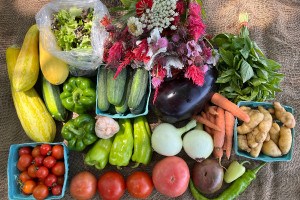Campbell’s Soup’s Salty Lady
The Inquirer reports that incoming Campbell’s Soup CEO Denise Morrison has a not-so-secret plan to restore her company’s fiscal health: add more salt. She announced the saline solution at a meeting Tuesday with a hundred investment analysts, none of whom must suffer from high blood pressure, since they welcomed the news. “That is awesome,” said one Jonathan Feeney, a “senior food and beverage analyst” at Janney Capital Markets in Center City. (Who knew?) Low sodium, he added, has been “overdone.”
In her presentation, Morrison noted that though Campbell’s Select Harvest soups have done well, not everyone likes the way they taste—or don’t taste. So recipes are being revamped. No wonder Feeney’s excited: He says consumers today are buying “a ton of frozen pizza and a ton of frozen meals with less-nutritional content.” Why? In uncertain times, we want our comfort food.
I love soup. Chances are I’ll go on eating it no matter how much tinkering Campbell’s does. I can’t blame Morrison for trying to revive her brand, though Feeney’s “awesome” cheerleading seems a tad cavalier. Federal dietary guidelines say we should limit sodium to 2,300 milligrams per day or less, and 1,500 if we’re over 51, black, or suffering from high blood pressure, diabetes or kidney disease. That would mean I couldn’t fit much regular old Campbell’s Chicken Noodle into my life; it packs 890 milligrams in a single cup. The Select Harvest Chicken with Egg Noodles weighs in at 480 milligrams … for now.
Then again, a recent meta-analysis of studies on salt intake and high blood pressure and cardiovascular disease showed “no strong evidence of benefit” for dietary sodium reduction. Scientific American recently called for an end to the “war on salt,” saying campaigns to limit intake are politically driven and unsupported by evidence. And a study published in May in the Journal of the American Medical Association concluded that the less sodium you’re excreting, the more likely you are to die of heart disease. Sometimes it’s hard to understand how so much science can only make it more difficult to know how to live healthily.


